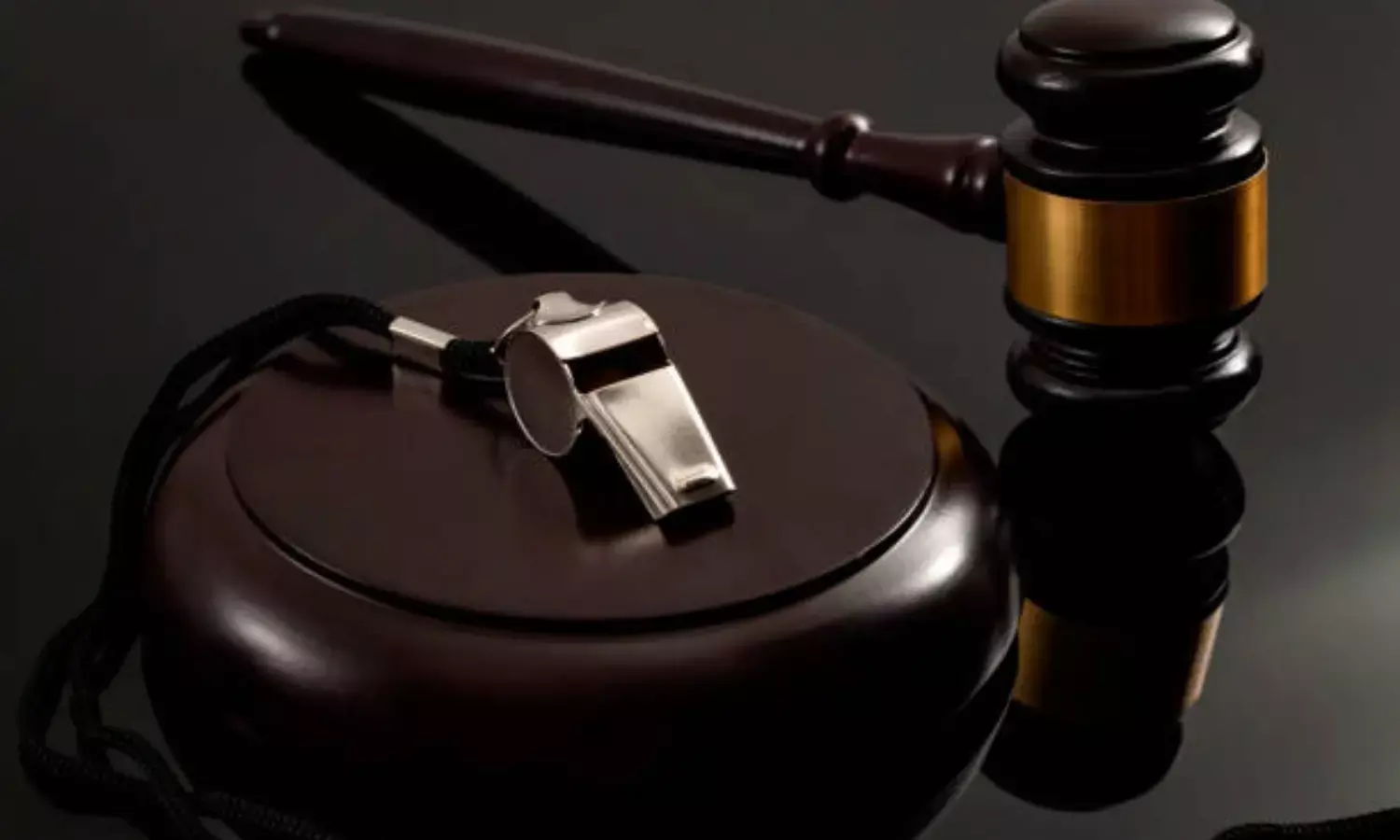Ozekhome, others express mixed feelings over whistle-blowing policy
The whistle blowing policy has failed, it collapsed about four years ago less than two years after it was formed because the government became roughish and was not paying the whistle blowers and it became an issue.;

Some legal practitioners have expressed mixed feelings over the whistle-blowing policy introduced by the Federal Government in 2016.
While some decry its failure to achieve the desired goals, others are of the view that the policy should be resuscitated and reviewed to achieve the desired goals.
Mr Mike Ozekhome, SAN, said that although the policy was meant for good, the ‘’Nigerian Factor’’ had made it redundant.
“The whistle blowing policy has failed, it collapsed about four years ago less than two years after it was formed because the government became roughish and was not paying the whistle blowers and it became an issue.
“Whistle blowers will blow whistle, detect huge sums of money in banks and government officials will go back and misappropriate the money and refuse to give the required percentage to the whistle blowers.
“I am aware of many of such cases in court. One is that of George Uboh is one of the biggest whistle blowering cases in Nigeria.
”He is in court over billions and billions of naira that he successfully blew whistle on but government refused to pay him his percentage.
“What they were doing was that it was given a façade in the first two years and after that the Nigeria factor set in and in fact many of the whistle blowers were being hunted, they became victims of a tyrannical system,’’ Ozekhome said.
Another senior lawyer, Mr Ugochukwu Onwulata said that the policy although very useful, had fallen into disuse in the last six years.
“I know for a fact that government had used the policy to recover a lot of stolen money, so I do not know why the policy has become more or less comatose,’’ he said.
Also speaking to the correspondent, Mrs Comfort Bai said that the whistle blowing policy was well intended but was not well handled.
“When the policy was formulated, it had all the elements required to successfully fight corruption as far as money laundering and other financial crimes were concerned.
“It started off well and people were exposing these corrupt practices, the EFCC discovered 9.8 million dollars from a former Managing Director of the Nigerian National Petroleum Corporation, Andrew Yakubu, and 11million dollars at an apartment in Osborne Towers, Ikoyi, Lagos because of information from whistle blowers.
“So the policy was working but then was the government keeping its own side of bargain by paying the whistle blowers, no.
“Whistle blowers had to keep dragging government to court and thereby exposing their identity and putting their lives in danger, this was how the policy started failing.
“If only it was being implemented according to how it was formulated, I believe that a lot more stolen monies could have been discovered,’’ Bai said.
For her part, Ms Grace Princely, said that the policy only needs refining in order to rechannel it towards achieving the goals it was formulated for.
“Whistle blowing is supposed to be a secure way of giving information out to government on money laundering and terrorism financing, it works and I think it should continue because it is the best way.
“My problem with it is that when people whistle blow, people close to them become targets so they need to work on shielding these people because it is supposed to be a safe and secure form of giving out information to government,’’ Princely said.
For Mrs LindaRose Bala, the whistle blowing policy is a well thought out one that should not be allowed to become redundant.
According to Bala, the policy should continue but the family members and identity of the whistle blowers must be protected.
Mr Kingsley Adaba also told NAN that although the policy seems to have failed, rather than waste time apportioning blame, all relevant stakeholders should meet and restrategise on how to revive the policy.
“The government, EFCC and other stakeholders should come together to resuscitate and sustain the whistleblowing policy.
`The anti-graft agencies, EFCC and the Independent Corrupt Practices and other related Offences Commission must wake to their responsibilities and be diligent and painstaking in using the whistleblowing policy in recovering more stolen funds without fear or favour.
“The three arms of government, executive, legislature and judiciary must throw their full weight behind this policy.’’
The News Agency of Nigeria, (NAN) reports that the Federal Government on Dec. 14, 2022 approved a new whistle Blower Draft Bill lamenting that the existing Whistle blowing Policy launched on Dec. 21, 2016 was losing momentum.
Launched in Dec. 2016, by the Buhari administration, the Whistleblower Protection Act facilitated through the Ministry of Finance provided legal cover for individuals who voluntarily exposed acts of fraud, bribery, financial misconduct and others forms of corruption.
The policy also rewarded a whistle blower who provided information about any financial mismanagement or tipoff about stolen funds to the ministry portal with 2.5 to 5 per cent of the funds recovered
NAN reports that in 2017, the then Acting Chairman, of EFCC, Mr Ibrahim Magu, disclosed that the introduction of the whistle-blower policy by the government had led to the recovery of about N17 billion by the commission.

